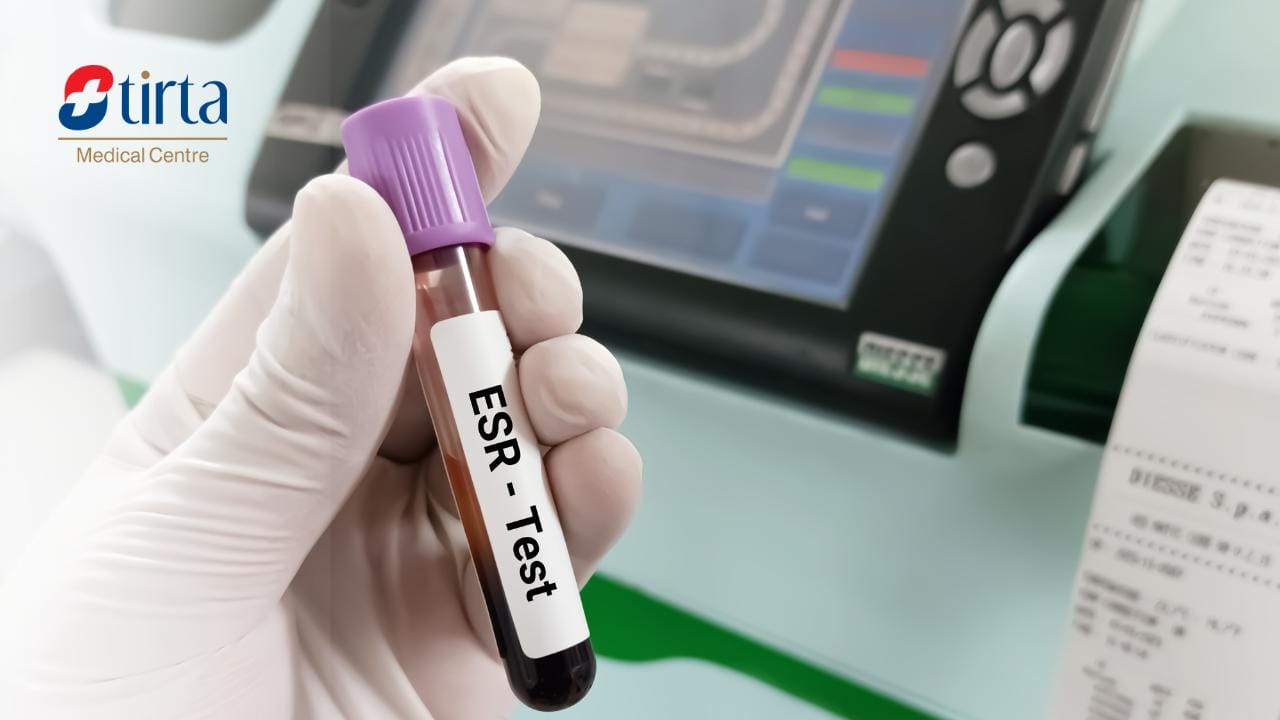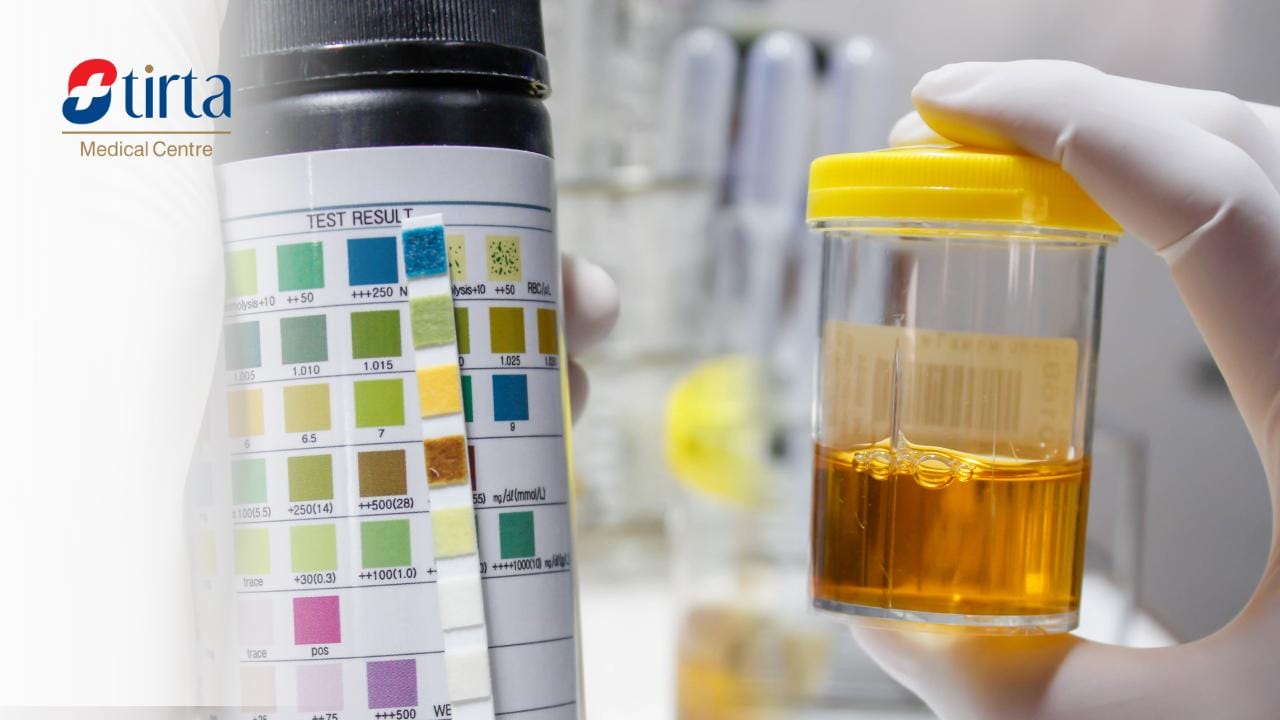Examination of the erythrocyte sedimentation rate is an important indicator for detecting inflammation or inflammation in the body.
A high ESR can result from various medical conditions, from mild infections to serious diseases needing prompt treatment.
What is Erythrocyte Sedimentation Rate?
The Erythrocyte Sedimentation Rate (ESR) is a lab test that measures how quickly red blood cells settle in treated blood plasma within one hour.
This test detects inflammation in the body; faster sedimentation of red blood cells indicates a higher likelihood of inflammation.
The ESR test is usually done using the Westergren method, the standard recommended by the International Committee for Standardization in Hematology (ICSH).
In the procedure, blood mixed with an anticoagulant is placed in a special vertical tube and observed for its sedimentation rate over one hour.
Causes of High Erythrocyte Sedimentation Rate
An increase in ESR can be caused by various medical conditions that affect the sedimentation process of red blood cells. Here are detailed explanations of these causes:
1. Autoimmune Diseases
- Systemic lupus erythematosus
- Rheumatoid arthritis
- Temporal arteritis
2. Malignant Conditions
- Lymphoma
- Multiple myeloma
- Waldenstrom’s macroglobulinemia
- Other malignant tumors, especially if no signs of inflammation are found
3. Infectious Diseases
- Bone infection (osteomyelitis)
- Heart infection (myocarditis, pericarditis, endocarditis)
- Rheumatic fever
- Skin infection
- Systemic infections
- Tuberculosis
4. Hematological Disorders
- Anemia
- Blood vessel disorders
- Vasculitis
5. Metabolic and Systemic Diseases
- Diabetes mellitus
- Kidney disease
- Heart disease
- Thyroid disorders
- Obesity
6. Physiological Conditions
- Old age
- Pregnancy
- Menstruation
7. Injuries and Trauma
- Physical trauma
- Tissue ischemia
- Tissue injury
Very high ESR values (more than 100 mm/hour) may indicate more active or serious diseases, such as malignancy and vasculitis.
ESR tests need to be interpreted along with clinical symptoms and other supporting examinations to determine the correct diagnosis.
Types of Infections that Cause an Increase in Erythrocyte Sedimentation Rate
Various types of infections can cause an increase in ESR values. Here are detailed explanations about these infections:
1. Bone Infection (Osteomyelitis)
This condition is more common in patients with diabetes or those with immune system disorders. Major risk factors include:
- Active smokers
- Diabetics with foot ulcers
- Patients with chronic health conditions such as kidney failure
2. Heart Infection
Several heart infection conditions that can increase ESR:
- Endocarditis (infection of the heart valves)
- Myocarditis (infection of the heart muscle)
- Pericarditis (infection of the heart membrane)
3. Systemic Infection
Infections that affect the whole body can cause significant increases in ESR, including:
- Sepsis
- Tuberculosis
- Rheumatic fever
4. Skin Infection
Some skin infections that can increase ESR:
- Erysipelas
- Cellulitis
- Deep soft tissue infections
5. Chronic Infections
ESR usually begins to rise 24–48 hours after the onset of acute inflammation and can last for weeks to months after the infection subsides. Some chronic infections that can increase ESR:
- Tuberculosis
- Chronic osteomyelitis
- Other persistent infections
Very high ESR values (over 100 mm/hour) have a 90% probability of indicating an underlying disease and require further investigation.
Erythrocyte Sedimentation Rate Test Results (Normal & High)
The results of the ESR test are measured in millimeters per hour (mm/hour). Here are the normal and abnormal ESR values based on age and gender:
Hasil pemeriksaan LED diukur dalam satuan milimeter per jam (mm/jam). Berikut adalah nilai normal dan abnormal LED berdasarkan usia dan jenis kelamin:
| Category | Normal Value | Abnormal or High Value |
| Women < 50 years | 0-20 mm/hour | > 20 mm/hour |
| Men < 50 years | 0-15 mm/hour | > 15 mm/hour |
| Women > 50 years | 0-30 mm/hour | > 30 mm/hour |
| Men > 50 years | 0-20 mm/hour | > 20 mm/hour |
| Children | 0-10 mm/hour | > 10 mm/hour |
Several factors that can affect ESR results:
- Advanced age
- Use of certain medications
- Pregnancy
- Menstruation
- Anemia
- Obesity
Interpretation of ESR results should always be done alongside clinical evaluation and other supportive examinations to determine the correct diagnosis.
What should you do if you have a high erythrocyte sedimentation rate (ESR)?
If the results of the ESR test show high values, here are some steps that need to be taken:
– Medical Follow-Up
- Consult a doctor for further evaluation.
- Undergo additional supportive examinations as indicated.
- Follow the prescribed treatment recommendations.
– Regular Monitoring
- Repeat ESR tests according to the schedule.
- Record any changes in symptoms experienced.
- Maintain a healthy lifestyle.
The ESR test is an important indicator in detecting the presence of inflammatory processes in the body. High results require further evaluation to determine the cause and appropriate management.
Where to Check Erythrocyte Sedimentation Rate (ESR)
Tirta Medical Centre (TMC) is the top choice for ESR testing in Indonesia.
With more than 30 clinics across Indonesia, TMC provides medical check up and high-quality, reliable laboratory services. The cost of an ESR check at TMC is very affordable.
Price for ESR testing at TMC: IDR 40,000
Note: Prices are subject to change at any time. Friends of Tirta can contact us for updates on ESR check costs or online reservations here:
Advantages of ESR Testing at TMC:
- High-quality & trusted laboratory in Indonesia
- ISO & KAN certified
- Accurate and quick test results
- Professional and experienced medical staff
- Laboratory Information System
References:
- OJS Kader Bangsa University. Accessed in 2024. Overview of Erythrocyte Sedimentation Rate (ESR) Results Using the Westergren Method in Outpatient Patients: https://ojs.ukb.ac.id/index.php/Jk/article/download/256/169/
- Politeknik Medica Farma Husada Mataram Journal. Accessed in 2024. The Effect of 10% EDTA Anticoagulant Dose and 3.8% Sodium Citrate on Erythrocyte Sedimentation Rate Testing: https://jurnal.poltekmfh.ac.id/index.php/JPKIK/article/download/25/14/28
- Healthline. Accessed in 2024. Erythrocyte Sedimentation Rate (ESR): Test and Results: https://www.healthline.com/health/esr
- UCSF Health. Accessed in 2024. ESR: https://www.ucsfhealth.org/medical-tests/esr
- Mount Sinai. Accessed in 2024. ESR Information: https://www.mountsinai.org/health-library/tests/esr
- NCBI. Accessed in 2024. Erythrocyte Sedimentation Rate: https://www.ncbi.nlm.nih.gov/books/NBK557485/
- UCSF Benioff Children’s Hospitals. Accessed in 2024. ESR: https://www.ucsfbenioffchildrens.org/medical-tests/esr








